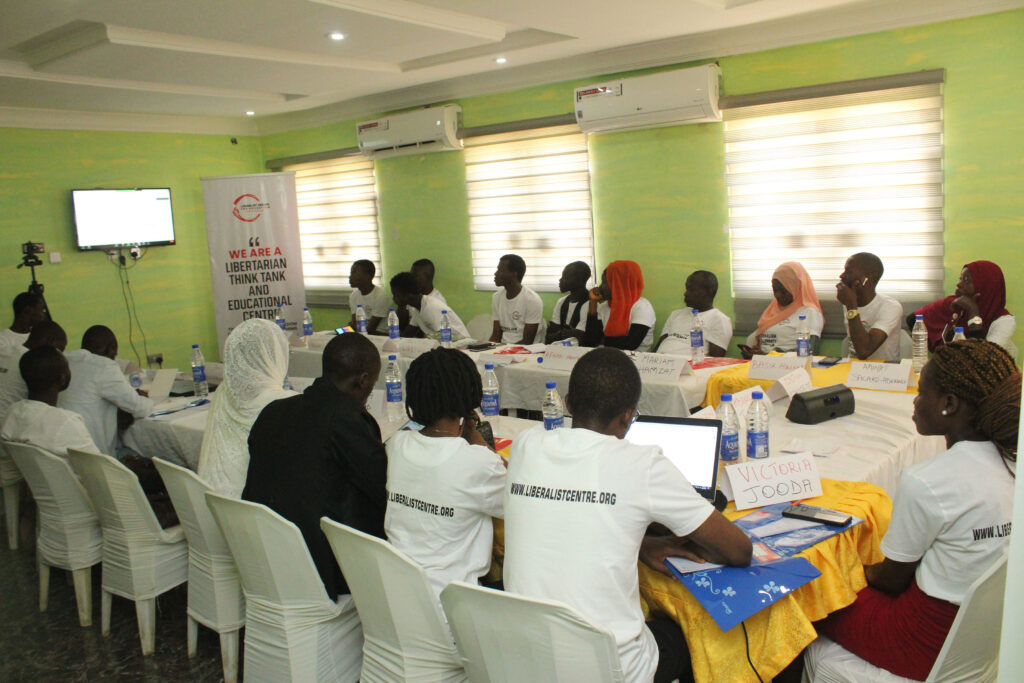The Liberalist Centre for Education, a Nigeria-based libertarian think tank promoting pro-freedom ideas for human flourishing, has trained journalists on pro-freedom reporting.

Themed “Prompting a Free, Prosperous Society Through Pro-freedom Reporting”, the event lasted for two days, held on Friday, 28th October and Saturday, 29th October at Ilorin, Kwara State.
The training which focused on educating the public about the ideas of liberty through pro-freedom reporting was part of the centre’s Journalism for Liberty project funded by Atlas Network, a non-profit organisation that secures individual’s rights to economic and personal freedom through its global network of think tanks.
Its other partners in this project include Face of Liberty International, African Students for Liberty and Cheetahs Policy Institute.

Speaking with the Programme Director, Johnson Sanni, he said coupled with the training, the project also includes launching a news magazine that focuses on publishing pro-liberty articles.
“Our aim is to establish a media platform that uses investigative stories, in-depth features, and engaging op-ed articles to inform and expose the adverse effects of excessive government’s powers and ways through which individual liberty and free market are impeded.
“After this training, these fellows shall become contributors to our news magazines and advocates of liberty through their reports,” said Sanni.
Recall that the Liberalist Centre opened applications for mid-career journalists and writers with interest in the ideas of individual freedom, free market and limited government for their Journalism for Liberty Fellowship 2022.
While speaking on the training sessions, Abdullah Tijani, the Executive Director, stated that the training was aimed at exposing the journalists to the ideas of liberty and the journalistic skills needed for reporting to promote the ideas.

“The training was an eye-opener for the participants,” he said. “It enlightened them on the ideas of freedom which serves as the basis upon which the philosophy of libertarianism is built.”
Speaking with one of the journalists, Adedayo Muhammed-Bashir said the training gave him an insight into the true ideas of liberty.
“Majorly, it was all about who we in the society and who we should be in respect to how to identity and protect our rights and freedom.
“And there was a clear definition of what liberty is and what freedom is, while comparing what positive right and negative right is all about. It was really an interesting and insightful session,” he added.


